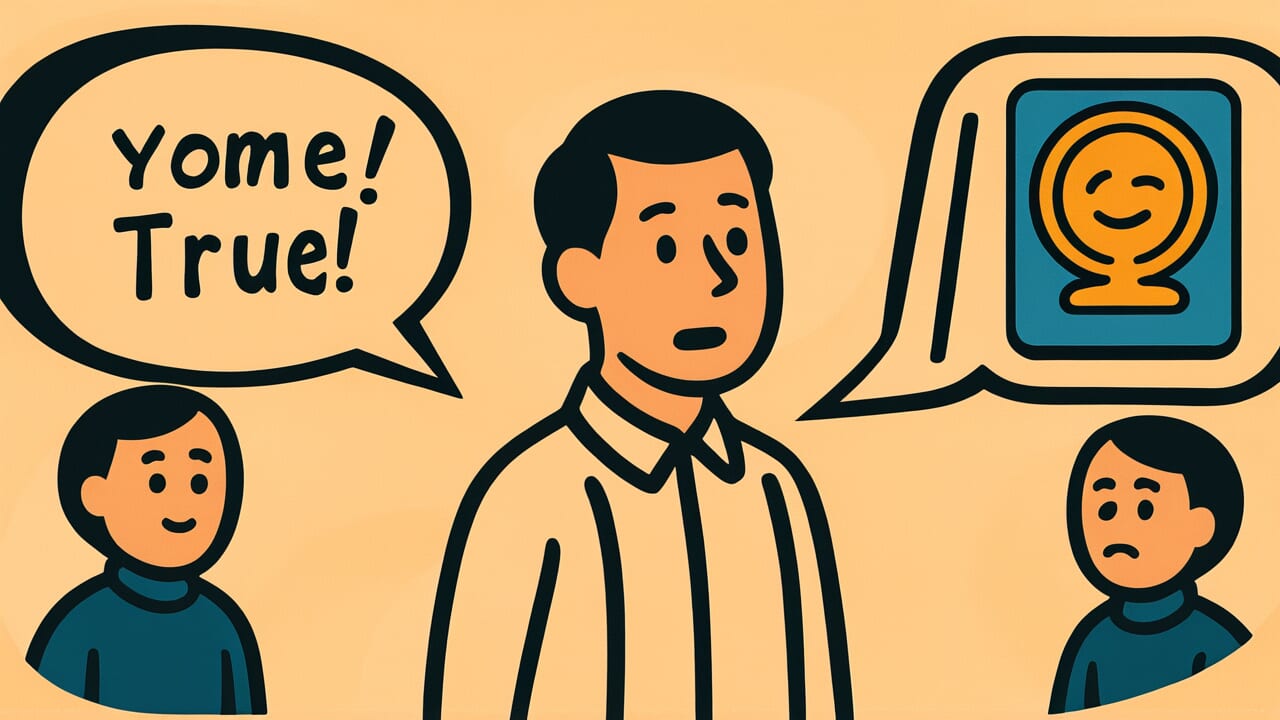How to Read “When one wish comes true, another one appears”
Omou koto hitotsu kanaeba mata hitotsu
Meaning of “When one wish comes true, another one appears”
This proverb describes a basic human psychology: when one wish comes true, a new wish is born.
For example, have you ever gotten something you wanted for years, only to find a new goal naturally appearing in your mind?
That’s exactly the situation this proverb describes. Satisfaction is temporary. The human heart always seeks something next.
This expression doesn’t criticize the fact that human desires never end. It simply describes reality as it is.
People use it when they notice their own endless wishes or see others making one demand after another.
It shows self-awareness like “Oh, here comes another wish” or understanding of human nature.
Even today, this phrase perfectly captures the emptiness after achieving a goal or the constant pursuit of something more.
Origin and Etymology
No clear written records exist about the origin of this proverb. However, we can make interesting observations from its structure.
The phrase “omou koto” (what one wishes) refers to deeply desired things, not just casual wants.
The expression “hitotsu kanaeba” (when one comes true) captures both the joy of fulfillment and the immediate shift in the heart that follows.
This saying likely emerged from people’s lived experiences. Imagine the lives of common people during the Edo period.
A merchant might have dreamed of owning a shop. Once that dream came true, new wishes appeared: expand the shop, move to a better location.
A farmer might have prayed for a good harvest. When that wish was granted, the next desire emerged: own more fields.
This proverb doesn’t view human desire or ambition negatively. Rather, it calmly observes human nature and expresses it in simple words.
The continuous birth of wishes is also proof that a person is alive. This saying contains a deep understanding of humanity.
Usage Examples
- I’m happy about my promotion, but I’m already thinking about the next position. “When one wish comes true, another one appears” is so true.
- I finally got my own home, but now I want a bigger yard. I can’t help but smile wryly at “When one wish comes true, another one appears.”
Universal Wisdom
“When one wish comes true, another one appears” brilliantly captures a fundamental human trait.
Why can’t people be satisfied even when one wish comes true? Because humans are beings who essentially seek growth and change.
Satisfaction is actually a very short-lived emotion. Psychologically, people feel greater fulfillment during the process of working toward a goal than at the moment of achievement.
In other words, the birth of new wishes is a natural mechanism for maintaining life energy.
This proverb has been passed down for generations because it speaks to human truth.
Ancient people and modern people experience the same heart movements after wishes come true.
When you climb one mountain, you see the next. That’s not unfortunate. It’s the driving force that keeps humans moving forward.
Our ancestors didn’t deny this endless chain of desires. Instead, they accepted it as part of being human and left these words to help us understand ourselves.
The continuous birth of wishes proves you still have dreams and want to grow. It’s proof of life itself.
When AI Hears This
Examining the brain’s dopamine system reveals a surprising fact. Dopamine is called the “happiness chemical,” but it’s released most abundantly not when wishes come true, but just before.
The brain is designed to respond most strongly to the anticipation state of “almost there” rather than goal achievement itself.
More interesting is that dopamine levels drop sharply when wishes actually come true. This phenomenon is called reward prediction error.
The brain doesn’t get excited by expected results. For example, the joy of promotion or passing an exam fades within weeks and gradually becomes “normal.”
Research shows that lottery winners’ happiness levels return to pre-winning levels after about one year.
This neural mechanism makes evolutionary sense. If one goal achievement brought complete satisfaction, human ancestors wouldn’t have searched for the next food or sought safer shelter.
They would have lost the survival competition. The brain is intentionally designed not to allow “lasting satisfaction.”
The infinite loop this proverb describes isn’t weakness of will. It’s the brain’s specification optimized for survival.
The emergence of the next desire isn’t because you’re greedy. It’s evidence your brain is functioning normally.
Lessons for Today
This proverb teaches modern people the wisdom to understand their heart’s movements and deal with them skillfully.
You don’t need to feel guilty about new wishes constantly appearing. It’s proof you’re continuing to grow.
What matters is not being swept away by the chain, but steering it yourself.
When you achieve one goal, pause for a moment and savor that joy.
When the next wish appears, determine whether it’s something you truly want or just the momentum of desire.
Modern society constantly drives us with “more, more.” But knowing this proverb, you understand the mechanism.
The chain of wishes can’t be stopped, but you can choose its speed and direction.
Sometimes stop and take time to appreciate what you have now.
When a new wish is born, don’t deny it, but don’t rush either. Face it at your own pace.
The continuous birth of wishes is proof that your life still continues forward.



Comments